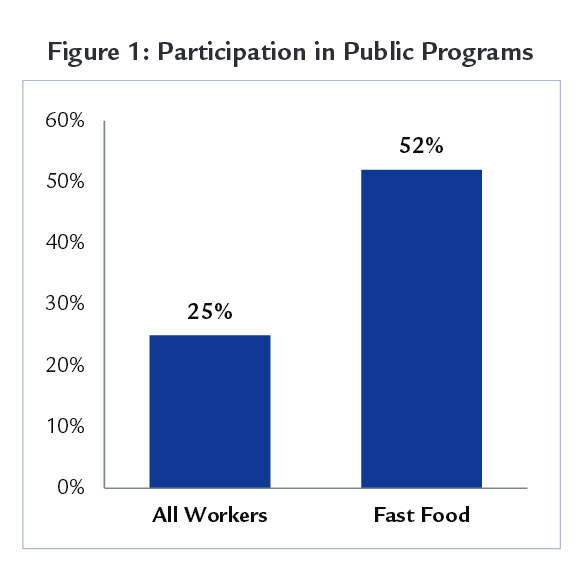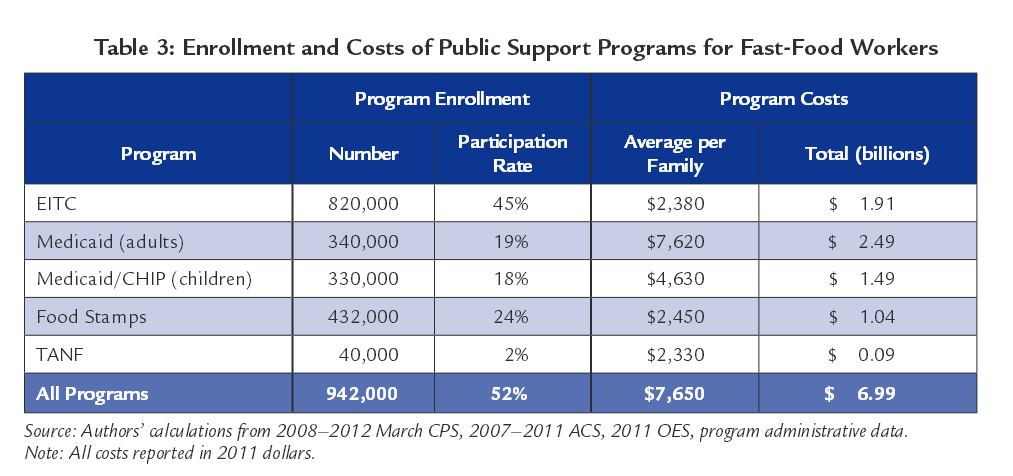October 31, 2013
As the nation debates the low wages of fast-food workers, the University of California, Berkeley Labor Center has released a report entitled Fast Food, Poverty Wages, which reveals the cost of public benefits programs for fast-food employees. The paper discusses how the low wages, low work hours, and limited employer-provided benefits leave over half of fast-food workers with little choice but to rely on government assistance programs to get by.
According to the Berkeley Labor Center analysis, fast-food workers earn a median income of $11,056 per year. Many earn only the federal minimum wage of $7.25 per hour and must get by on part-time work hours. Yet, even at full-time hours, fast-food wages are not enough to provide families with food, shelter, transportation, and other basic necessities.
The study finds that working families make up 73 percent of public benefit program enrollments and account for 63 percent of program costs. The report identifies the four main programs that provide assistance to eligible low-income individuals and families: health insurance, the Federal Earned Income Tax Credit, food stamps (now called SNAP), and basic household income assistance.

Source: Fast Food, Poverty Wages
More than half of fast-food workers and their families are enrolled in at least one public program, twice the rate of the rest of the workforce. While nearly 60 percent of the workforce receives employer-provided health benefits, only 13 percent of fast-food workers are covered. Fast-food employees lack the wages and benefits to live without government assistance.
The UC Berkeley researchers conclude that insufficient fast-food wages cost taxpayers $7 billion per year in public benefits programs for families of workers in the fast-food industry alone.

Source: Fast Food, Poverty Wages
While many people believe that fast-food workers are primarily teenagers who live with their parents and do not need benefits or higher wages, government data show that 68 percent of fast food employees are adults. Many workers rely on fast food paychecks to support themselves and their families.
The report notes that the fast-food workforce is disproportionately made up of women (73 percent), African Americans (23 percent), and Latinos (20 percent).
Despite the billions of dollars of profits that fast-food companies make each year, they provide low wages, low hours, and low benefits, which leave taxpayers to pick up the tab for the fast food employees’ public benefits programs.
Read the report by UC Berkeley’s Labor Center and a related report by the National Employment Law Project.






